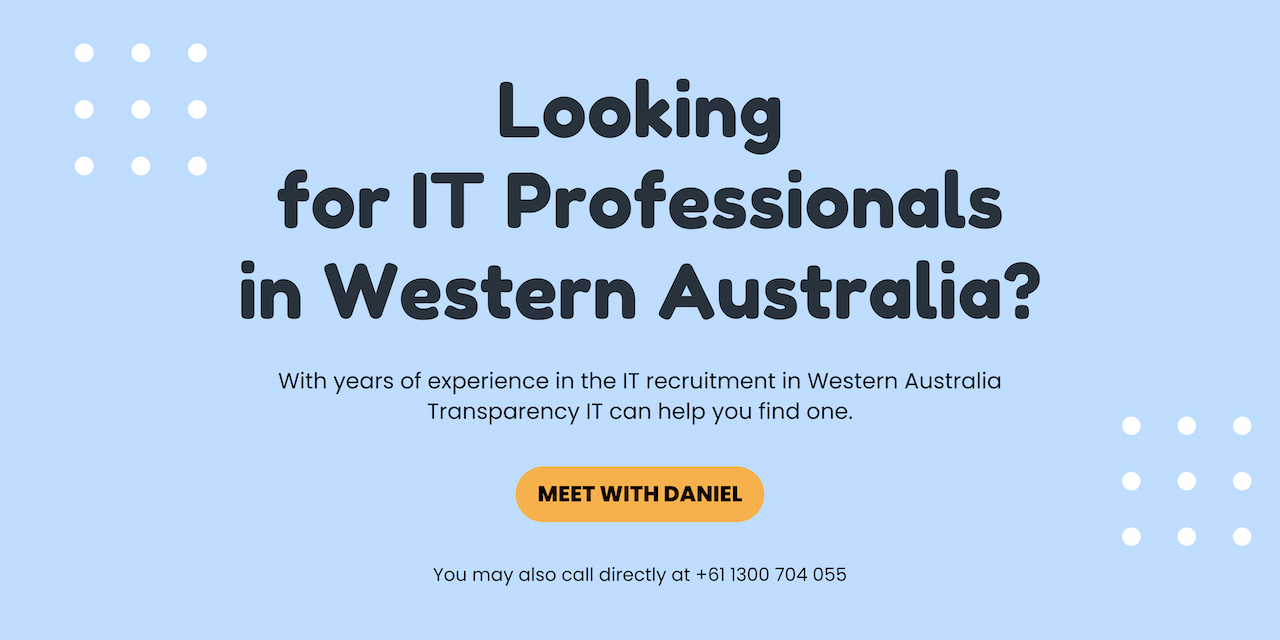I’ve filled several roles recently with graduate level IT support people. Let me tell you, these roles are not easy to fill.
Just because they are entry level doesn’t make it any easier to find a standout candidate that will be able to cut it particularly for MSPs (Managed Service Providers). The problem is the CV can’t tell you a whole lot about their technical knowledge or working experience. They’re a grad right, that generally means they don’t have industry experience.
Further to this, you can’t simply consider the CVs that look like they have been well produced and well thought out because for many grads, this is the first time they’ve ever written a CV and they really have no idea what they should or shouldn’t include and how to set themselves out from other IT graduates.
Of course, you could look at things like academic performance and grades and maybe even extracurricular activities they’ve done at TAFE or UNI and make some kind of judgement on these but even that is stabbing in the dark. In TAFE and technical colleges in Australia at the moment, they don’t release marks. They simply give you a pass or fail. And with university graduates even the ones with top marks can often be very book smart and good at passing exams but sometimes very poor when it comes to the retention and application of that knowledge when they’re in front of a computer or server. This leaves you with only one option, and that is to interview the candidate. And this is incredibly time consuming when you consider that there are a lot of graduate applicants for any entry level role.
For all the MSP roles that I recruit for, a vibrant personality and client facing professional manner is essential for any role in the company. This being the case, there is no other way to test the appropriateness of a candidate for an MSP role other than an interview, one of those person to person interactions. So how do you whittle down that large list of candidates and work out the ones that you’re going to interview?
Well, here is a few techniques I use to make sure that no grad falls through the cracks and yet I can still optimise my time interviewing only the best fit candidates. Bear in mind, you’ll always need to do more interviews for a grad level role than you will for higher level roles.
Technique #1: Set aside time for phone interview
Set aside time to phone interview any candidates that meet their criteria for the role. Usually this will mean candidates that have completed the appropriate course and show enough detail, and competence on their CV to look like they have employable skills. If you need to further refine this list, you can look for other jobs in other industries, work experience, voluntary positions, and technical detail or self-education sections of the CV which show an obvious passion and interest and some knowledge in IT outside of the course that they’ve completed. For more about Self Education sections on CVs check some of my other blogs.
Technique #2: Prepare 3 standard questions
In the phone interview, be prepared with 3 standard questions that you ask all candidates in addition to having a general chat with them.
One question should be technical in nature but still quite simple.
Another question should be based around themselves, their personality, their likes, and dislikes. Something that will give you an idea about them and allow them to talk about themselves so you can see what comes out. With that question you’re looking at getting to some of their uniqueness and something that they might add to your company and how they might fit in. Make sure it’s an open-ended question.
The third question should be about whether they’ve done any jobs in the past or any work experience in the past and how they found that and if there are any referees available for those jobs. With that question, you’re trying to determine their employability. Remember, as we’re dealing with grads who may have never had a job before it’s always a risk as to whether they can work a solid 8-hour day, dressed appropriately, arriving and leaving on time with a reasonable sense of personal hygiene. (I’m sure you know what I mean).
Technique #3: Face to face interview shortlist
Based on the results of the phone calls, you should get a shortlist of hopefully 3 or 4 candidates that are worth interviewing face to face. Possibly even more if you couldn’t determine from the phone calls much difference between the candidates.\
The interview is probably the easiest step. By this time, you know a little bit about each candidate that you’re interviewing. You can refine your questions, accordingly, including checking for any red flags that may have come up during the phone interview, things that you’re not sure about in terms of their fit for your company and culture. You can ask some more detailed questions related to the sorts of problem that you deal with on a day to day basis and how they might be able to help with those.
You’ll be trying to make a determination on how they would treat your clients. You can do this simply by observing the way they respond to the questions that you ask and how they interact with you. For example, if they have questions themselves, if they are easy to talk to and keep the conversation going and are quite confident socially then that is a good sign that they will be very good in front of your clients both on the phone and face to face.
Ideally with grads you’re looking for a safe pair of hands with the potential to be a superstar. Once you’re convinced of the former you can start working on the latter.
Need help in filling in IT roles in your IT company? Perhaps I could help you find suitable IT candidates. Let’s have a conversation about it. Book a meeting with me here.


